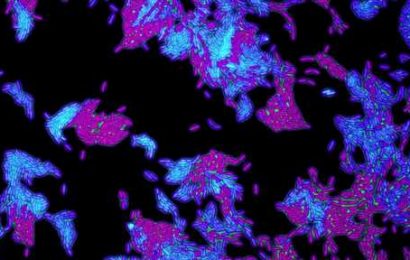Successful treatment of cancer frequently depends on early detection. However, many cancers are detected late, often after metastasizing to other sites. Participants at the 7th USA — Japan Workshop on Biomarkers for Cancer Early Detection presented cutting-edge research to improve early detection and cancer prevention using advanced biomarkers and radiomics. Their findings and recommendations are published in a special issue of Cancer Biomarkers.
The National Cancer Institute (NCI), the Early Detection Research Network (EDRN), and the Japan Agency for Medical Research and Development (AMED) hold an annual USA-Japan Workshop on Biomarkers for Cancer Early Detection. The 7th USA — Japan Workshop was held at the Ito International Research Center at the University of Tokyo in January 2020.
“Researchers from Japan and the US have been meeting annually to exchange ideas for the early diagnosis and detection of cancer since 2016,” explained Guest Editor Kazufumi Honda, DDS, PhD, Department of Bioregulation, Graduate School of Medicine, Nippon Medical School, Tokyo, Japan. “These pipelines and platforms for early detection of cancer will contribute to the implementation of attractive new methods for early cancer diagnosis, with the potential to decrease cancer.”
The papers in this special issue describe new technologies for comprehensively measuring proteins and metabolites using mass spectrometry; validation studies to evaluate the clinical utility of new diagnostic methods; use of computational science to analyze large volumes of information acquired by new technology; and blood biomarkers that facilitate the early detection of pancreatic cancer and also help identify high-risk individuals.
Mortality rates of pancreatic cancer are the worst among solid cancers. However, this is an uncommon cancer with an age-adjusted annual incidence of 12.9 cases per 100,000 person-years. To efficiently identify patients with potentially surgically-curable pancreatic cancer, high-risk individuals should be identified by easily and minimally invasive methods from the general population. Dr. Honda and colleagues described blood biomarkers that facilitate not only the early detection of pancreatic cancer, but also help identify high-risk individuals. The clinical usefulness of apolipoprotein A2-isoforms (apoA2-i), which are formed by post-translational modification via enzymatic activity in pancreatic lesions, for the early detection and risk stratification of pancreatic cancer were reviewed. The results of a large-scale prospective screening study for pancreatic cancer that used the apoA2-i blood test were also presented.
The large volume of information acquired by new technology cannot be analyzed without computational science. Matthew B. Schabath, PhD, H. Lee Moffitt Cancer Center and Research Institute, Tampa, FL, USA, and colleagues utilized peritumoral and intratumoral radiomics and volume doubling time (VDT) to identify high-risk subsets of lung cancer patients diagnosed by lung cancer screening who tend to have poor survival outcomes. They generated a model that identifies the high-risk group of screen-detected lung cancers that is associated with poor survival outcomes.
Source: Read Full Article


